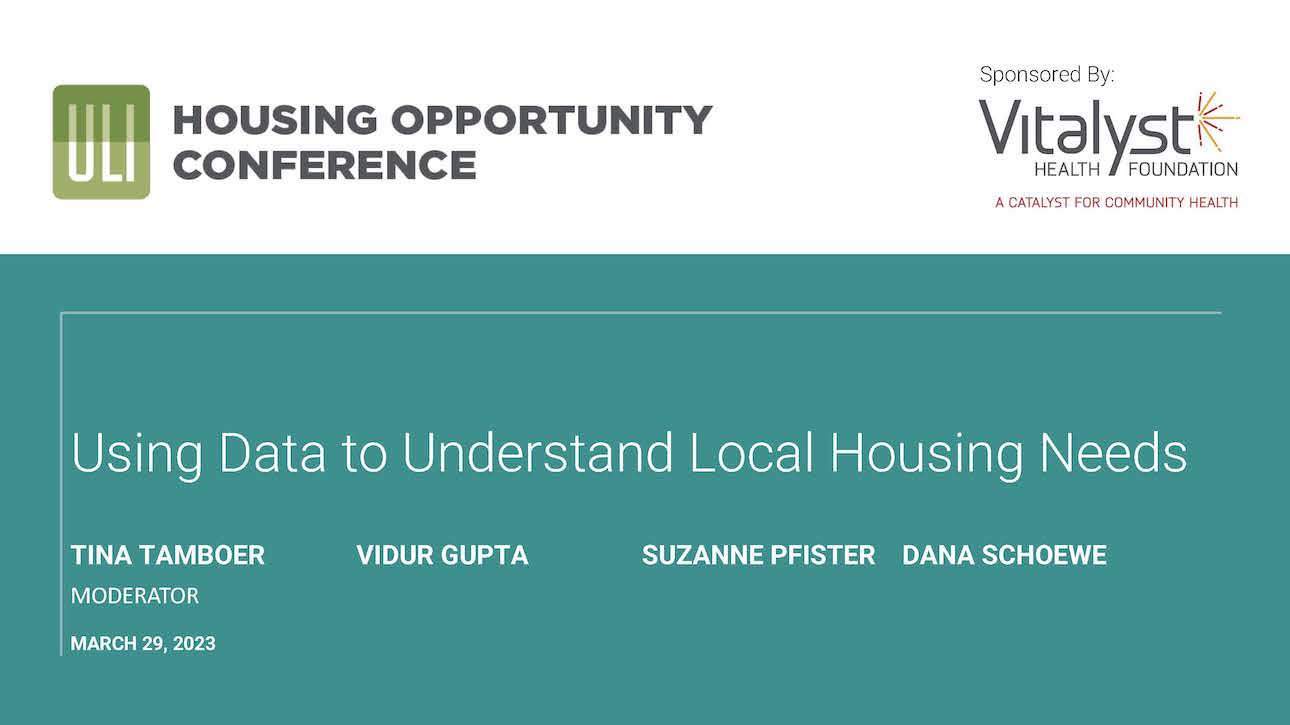Using Data to Understand Local Housing Needs

2023 Housing Opportunity Conference
会议摘要:
会议摘要:This insightful panel presented several existing data tools that can be utilized by practitioners to understand and meet their local housing needs. The session addressed the difficulties that come with trying to understand and use data from sources like the census, but highlighted how doing so successfully can turn data into a tool for storytelling to help humanize housing challenges to promote change, from increasing density in NIMBY communities to supporting co-location of housing with other infrastructure.
版主
有关的
网络研讨会
ULI 多伦多六户公寓现实检验:驾驭住宅社区密集化的前景
这场由多伦多 ULI 举办的网络研讨会汇聚了早期采用者和行业领袖,他们正在将新政策转化为实际项目。 通过实践案例研究和坦率讨论,研讨小组探讨了哪些做法有效,哪些仍然无效,以及为了让六户住宅成为可扩展、可投资且市场准备就绪的住房解决方案,哪些方面需要改变。
报告
Global Real Estate Workforce Survey (Volume IV)
The Global Real Estate Workforce Survey (Volume IV) provides insight into how commercial real estate organizations are managing workforce composition, culture, and people practices during a period of significant change for the industry.
案例分析
ULI Homeless to Housed Case Study: Avanath Housing Preservation Program
As an investment firm, Avanath takes a holistic approach to acquiring, renovating, preserving, and owning affordable housing for working families, primarily serving those who earn between 40 and 80 percent of the area median income (AMI).
话题


